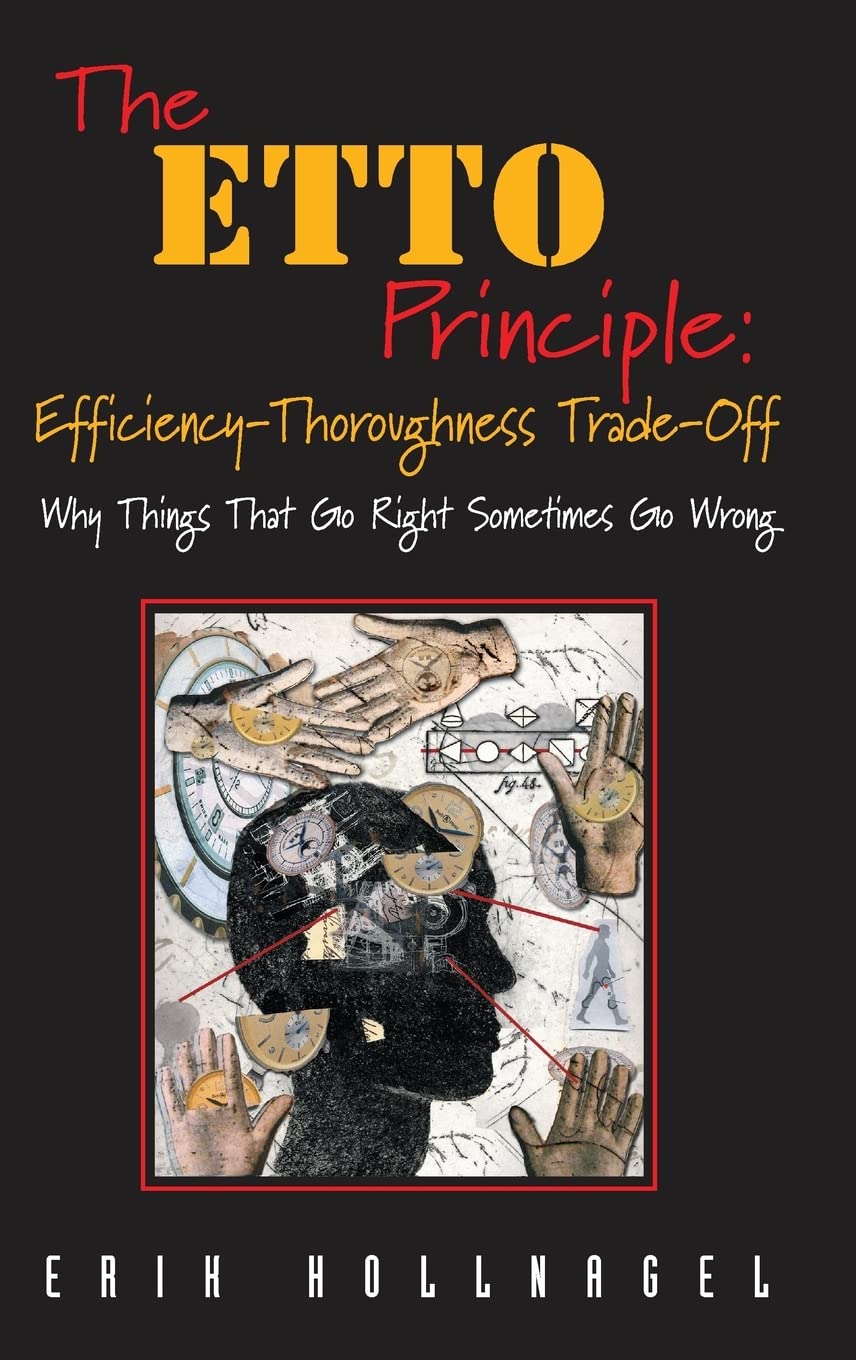


Full description not available
D**O
A good collection of self-evident ideas
Everyone who has engineering degree and work experience in engineering field already has not only clear understanding of all the ideas contained in the book, but also feel them with sixth sense.
R**N
For all Deck and Engine Officers!!! MN
Just Read it
B**M
Thorough, practical and thought provoking
This is an interesting book. The examination of accidents is nothing new, there are dozens of models and hundreds of books. This book stands aside as it takes a different view - things mostly go right. This book describes the way in which people make trade-offs all the time - sometimes it doesnt work out. Importantly, this book addresses the failings of some of the traditional methods such as causal analysis that relies on resultant (rather than emergent) analysis. Put simply, this book illustrates that for complex systems there is a need for a new way of understanding why things go wrong - and how to learn from these events. Finally, this book provides a way of thinking through events for these complex systems.
A**R
Five Stars
Fantastic
W**F
Useful review of decision making in organizations
Hollnagel describes a general principle, the efficiency-thoroughness trade-off (ETTO), that he believes almost all decision makers use. ETTO means that people and organizations routinely make choices between being efficient and being thorough. For example, if demand for production is high, thoroughness (time and other resources spent on planning and implementing an activity) is reduced until production goals are met. Alternatively, if demand for safety is high, efficiency (resources spent on production) is reduced until safety goals are met. Greater thoroughness is associated with increased safety.ETTO is used for many reasons, including resource limitations, the need to maintain resource reserves, and social and organizational pressure. In practice, people use shortcuts, heuristics and rationalizations to make their decision-making more efficient. At the individual level, there are many ETTO rules, e.g., “It will be checked later by someone else,” “It has been checked earlier by someone else,” and “It looks like a Y, so it probably is a Y.” At the organizational level, ETTO rules include negative reporting (where the absence of reporting implies that everything is OK), cost reduction imperatives (which increase efficiency at the cost of thoroughness), and double-binds (where the explicit policy is “safety first” but the implicit policy is “production takes precedence when goal conflicts arise”). The use of any of these rules can lead to a compromise of safety. As decision makers ETTO, individual and organizational performance varies. Most of the time, things work out all right but sometimes failures occur.Failures can happen when people, going about their work activities in a normal manner, create a series of ETTOs that ultimately result in unacceptable performance. These situations are more likely to occur the more complex and closely coupled the work system is. The book is populated with many examples.Hollnagel is a psychologist so he starts with the individual and then extends the ETTO principle to consider group or organizational behavior, finally extending it to the complex socio-technical system. He notes that such a system interacts with, attempts to control, and adapts to its environment, ETTOing all the while. System evolution is a strength but also makes the system more intractable, i.e., less knowable, and more likely to experience unpredictable performance variations. He builds on sociologist Charles Perrow in this area but I'm not convinced Hollnagel understands how complex systems actually work.I feel ambivalence toward Hollnagel's thesis. Has he provided a new insight into decision making as practiced by real people, or has he merely updated terminology from earlier work (most notably, Herbert Simon's “satisficing”) that revealed that the “rational man” of classical economic theory really doesn't exist? At best, Hollnagel has given a name to a practice we've all seen and used and that is of some value in itself.
Trustpilot
1 week ago
3 weeks ago